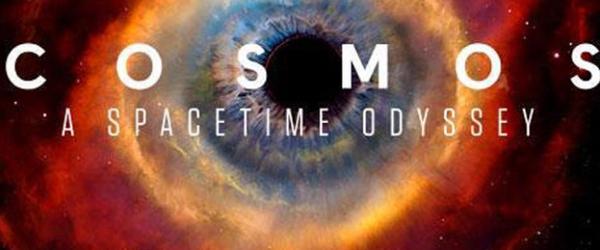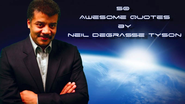-
About
- About Listly
- Community & Support
- Howto
- Chrome Extension
- Bookmarklet
- WordPress Plugin
- Listly Premium
- Privacy
- Terms
- DMCA Copyright
- © 2010-2024 Boomy Labs


 Kendra Brea Cooper
Kendra Brea Cooper
Listly by Kendra Brea Cooper
Seth MacFarlane’s Cosmos: a SpaceTime Odyssey is more important than your average television show. Reappearing 34 years after the original, Neil deGrasse Tyson hosts a remake of one of the most influential T.V. shows in history. The mix of science and pop culture is a match made in the heavens.
Pop culture is important. It is the part of culture that seems like it is everywhere. People may disregard television shows as meaningless garbage but they are made up of representations and discourses that convey values. Because of this, T.V. shows can be an area for social change and resistance.
Television shows like The Big Bang Theory have had huge mainstream success while using scientifically accurate language along with humor. There is some value in the script beyond just banter. It has the possibility to inspire future scientists. Carl Sagan’s Cosmos: a Personal Voyage originally aired on PBS in 1980 and was a huge success for the network. Sagan’s passion for science and interesting dialogue opened up the space for more science in popular culture.

34 years later and Cosmos is reborn as Cosmos: A Space Time Odyssey. This time Neil deGrasse Tyson is hosting while Seth MacFarlane (Family Guy creator) is producing. Tyson is known as a popular figure in science and has participated in other television shows like The Colbert Report and Jeopardy. Tyson’s passion for science and knowledge in general is apparent. One need to look no further than his Twitter account to see just how relatable and charming he is. His ability to weave in and explain science within popular events reminds us that science is all around us. Tyson met Carl Sagan when he was 17 after Sagan invited him to spend time at Cornell. Sagan’s humble qualities and his openness led Tyson to state “I learned from Carl the kind of person I wanted to become”. It’s so heartwarming it could be a movie, seriously.
Unlike The Big Bang Theory which first and foremost sets out to entertain, Cosmos is knowledge based. It has an entertaining quality which offers the viewer some education. Learning about science through the usually unconventional method of popular culture means it will reach a larger audience. Some may watch passively but others may learn something important for the future. An understanding of science can lead to complex problem solving. One of these Cosmos viewers might save the world. It’s just a thought.

Another reason the mixture of science in popular culture is beneficial to us is because it frees science from the walls of the schools. It enters into everyday conversations. Tyson on the cover of T.V. guide sparks a new way of discussing science. Some may see as a “watering down” and others my see it as science breaking into new areas of culture. Instead of talking about who won the latest Dancing with the Stars (which is totally fine) we could be talking about our genetic similarities with trees. This is far more fascinating if you think of it as learning a secret about the universe.

Pop culture and all that ideology sitting in the blind spot. Also crafts.